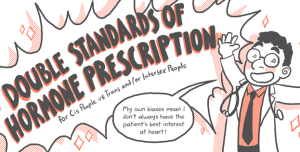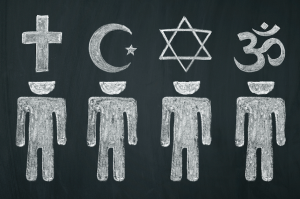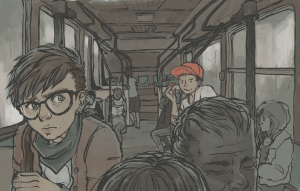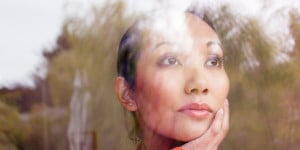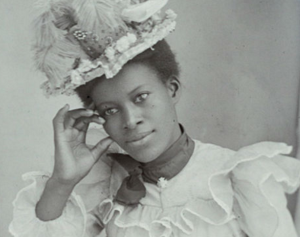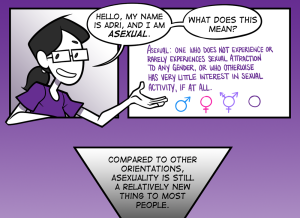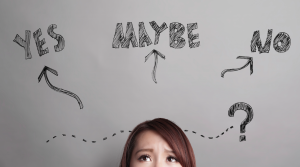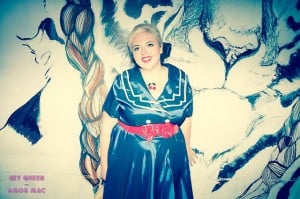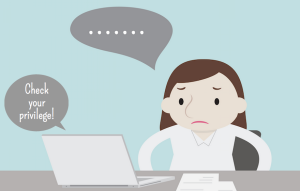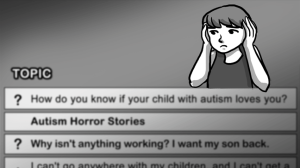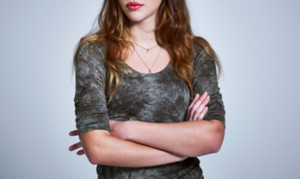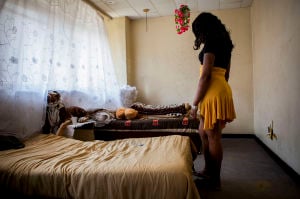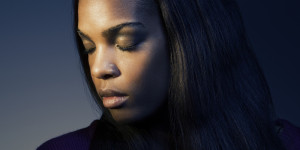
Source: Huffington Post
(Trigger Warning: Description of sexual assault)
Editor’s Note: The video to which the author refers has been rightfully criticized for its portrayal of race relations; as such, we have opted to take out links to it.
Last October, the anti-street harassment organization Hollaback used a hidden camera to record a woman named Shoshana B. Roberts as she walked the streets of New York.
In the video, she is subjected to catcall after catcall; a man even goes so far as to follow her closely for five minutes, hoping to get her attention.
Watching her was like watching a snippet of my own life.
Everything that had happened to her, I’d experienced, and that sense of fellow-feeling persisted even as the footage unfolded a troubling pattern: a racially ambiguous, and therefore read as white, woman being swarmed by droves of men of color.
My boyfriend immediately noticed the lack of white men in the video and took offense. Being black and built like a linebacker, he knew all too well what the trope of the salacious black predator looking for a white woman to rape could do to his life and livelihood.
I wanted to sympathize with him, but I found Roberts’ ordeal too personally affecting.
For days, I was unable to consider the semantics of race in the video, even after Hollaback admitted that the edit did not properly reflect the racial range of harassment Roberts encountered (apparently white harassers attracted sirens, poor sound bites, and bad camera angles).
But in the end, even my personal emotions about the video can’t be totally divorced from issues of race.
The truth is that women of color are disproportionally affected by street harassment – often, we’re victimized not just for being women, but for being Black.
I’ve had men of all races ask me to ignore harassment from Black men for the sake of Black male lives, while Black women are abused and even killed for being Black and woman.
But I’ll never understand why anyone believes I could possibly choose between my gender and my race. For me, there is no separating Black from woman. It is intrinsic to our identity and everything we’ve ever known about street harassment.
I can’t remember the first time a man approached me on the street. I do recall a few strange encounters as a little girl, but my father had always been there to chase them away.
Once my parents stepped back, the world rushed on me and stripped my innocence, because that’s how we treat innocence: like a coveted jewel that has to be stolen early. We revere it first, but will revile it if kept too long.
I don’t remember the first time, but I do remember a summer.
I’d just turned sixteen, and it was as if I came of age overnight. Men, in the most abrupt manner, began to see me. Sixteen years and some odd days not one man had ever felt compelled to say hello to me, to say “god bless” or ask me to smile.
Then one summer afternoon, they did – all at once. Heads swiveled, bodies pivoted, whistles zipped by like line drives, and so many blessings, I was up to my ears in blessings, so many men so suddenly interested in my standing with God.
When I returned home, I remember, my cheeks were twitching and sore because so many of them had demanded that I smile, and because they were my elders, I obliged. I figured I must appear so unkind if that many people believe I should smile.
I called a friend on the phone and told her what happened. “It means you’re pretty,” she snipped. “You should be grateful.”
A week later, another afternoon, I waited outside the dentist’s office in Berkeley for my father to pick me up. A Honda Accord came blazing down the street with its horn on cruise control.
A hand popped out the sunroof, waving madly, and I stepped away from the curb, fearful – for all I knew the driver had lost control of his car and seemed to be coming straight at me.
But there was a break in its erraticism. Only a foot or so from me, the Honda slid into control and cruised by, two men gleamed over their sunglasses at my legs in shorts and my high school basketball team sweatshirt.
They kept on bravely, no hesitation in the car speed, no indication that they might have felt guilt for frightening me.
They’d been satiated, and I remembered to be grateful. They thought I was pretty, after all, and had risked their lives showing it.
The next day, a summer evening, I was sexually assaulted in an elevator. I’ve never told anyone, until now.
Friday nights, my friends and I loved to go to Jack London Square for dinner and a movie. After the movie, we broke off from each other in front of the theatre. I crossed the street into the parking complex. I entered the elevator with two men, who stood behind me whispering, “Damn, girl.”
And as soon as the elevator doors closed, they herded me into the corner and coaxed me for a hug. I kept looking over their shoulders at the level indicator. I was on Floor 5 and by Floor 2, with the pair already aggravated by my reluctance, I figured I better hug the each of them and hug the each of them well.
Each rubbed against me hungry, the points of their dicks raising, nuzzling, and catching between the fabrics that separated me from them. One dropped his hand to my bottom and squeezed. “You’ve got a white girl’s ass,” he snipped. I told him I was sorry. I didn’t know what else to say.
They got off on the fourth floor, both of them tugging and readjusting their hardness. “You’re so beautiful,” one said, the one who had not accused me of having a white girl’s butt. His words struck me out of the numbness that his touch had left me in.
It was the first time I remember being called beautiful.
Where I came from, it was impossible to be beautiful and be Black. Beautiful meant white, beautiful meant Asian, but it most certainly did not mean Black. At most, Black could be pretty, but if you were pretty and Black you were Latina, you were mixed, you were anything other than regular ol’ Black.
So I was grateful and because I was grateful, I thanked them. I thanked them as those elevator doors closed.
I didn’t know then that I’d just thanked them for sexually harassing an underage girl in an elevator. I didn’t know I’d just encouraged them to continue this pattern on the next girl they might find alone trying to make it home before curfew.
All I knew was that I was Black, and someone had called me beautiful. That was a compliment. So I had to be grateful.
By adulthood, I happily questioned the persistence of Christian gratitude in my life. Twenty-odd years being grateful, and I had experienced a ruined athletic career, an arthritic knee, a parent’s death, a devastating romantic heartbreak, and a diagnosed depression and anxiety disorder.
I wasn’t quite sure anymore what to be grateful for.
I moved to the East coast – Washington, DC first then later New York, where I began to rebuild my life free from perpetual gratitude.
I was especially no longer grateful to the men who paid me their compliments when I walked by, on my way to work or to the gym. I began to covet my privacy, my space, and my time, and I no longer felt appreciative of them impeding any of it.
Sometimes I was just too tired to function beyond a mechanical walk, hurrying to my warm bed. I found the men who approached me equally ungrateful for my irreverence, but while I preferred to keep my silence, they were happy to voice their concerns.
“You should be thankful!” a few have yelled. “You should be thankful someone is paying you a compliment!” Their concerns grew more aggressive.
They began to criticize my clothing (“put your titties in!”), my personality (“you’re a snob”!); they began to renege on anything they’d initially said (“you ain’t that pretty anyway!”).
Most devastatingly, men began to accuse me of bringing down Black womanhood. They would tell me I was a prime example of the “bad attitude” that was a supposed epidemic among Black women.
Men would tell me that I was a prime example of why all men preferred their women white, because I, like all other Black women, was ungrateful.
I took their criticisms and considered them more than I’d like to admit. Once in an elevator, I’d been beautiful, a feat no other plain Jane Black girl from my neighborhood had ever accomplished. Now I was the epitome of the worthlessness of Black womanhood.
My Black womanhood became a thing that belonged to everyone else but me. It was something that men of all races sought to define.
For the men I grew up around, they used it as a mallet to discipline us. To act out in our Blackness was to shame an entire culture. But what I soon found out was that this harassment was practically universal.
The first time a white man approached me, it startled me. I was at the grocery store, and he just kept following me. I felt his gaze on me when my back was turned, but every time I faced him, he pretended to look at cereal boxes and canned foods with a tiny smirk on his face.
Finally he approached me in line, claimed to be rich and asked if I’d ever been to France. I told him yes, several times. That shocked him into silence, a girl like me doing fancy things like going to France. He spun on his heels and hurried away.
And again, like some cosmic rite of passage, the faucet of white man harassment turned on and flooded my existence.
Again I was told to be grateful, because if the wondrous white male could come off his throne, part the sea of sparkling white women and choose my black ass, then clearly I was something to marvel at.
But what I learned was an entirely new way to fear.
White harassers at their boldest with me would reach out and touch my hair, my legs, my nose, always my nose (“You don’t have a black nose,” so many have said) — as if I was on the slave auction block.
Their entitlement frightened me. Their direct invasion of my space, their willingness to put their hands on me then laugh if I snatched away was something I’d never encountered with any ethnic man.
Often they spoke to me in so called “Black vernacular” as if I was not American. They’d ask me how to comb my hair, or tell me their white dick was much like a black one.
I learned their language quick, and it often involved telling me how much I reminded them of a white woman. “You’re the whitest Black girl I know,” I heard too many times to count.
By twenty-seven I knew that the worst thing a Black woman could be described as was “Black” and “woman.”
One summer night in New York, I managed to get away from a group of white men — who had spent a large amount of time on the C line trying to convince me to go to some seedy motel party despite my repeated refusals — only to be followed into a bodega by a pair of Black men, who hissed insults at me.
I was “color struck”, a “sell out.” And trapped in that dusty and cluttered aisle, clutching a Cup O Noodles I had no intention of buying, something in me snapped. I wasn’t grateful. I was mad as hell.
Twenty-seven years worth of pent-up vitriol overflowed and I hurled insult after insult at them. Fuck you. Fuck your small dick. Fuck your insecurity. Fuck your life. Fuck all men like you. Fuck any son you’ll have that will be like you. Fuck! Fuck you.
They were only spurred and livened by my rage, all too happy to call me a bitch and remind me, “this is the problem with you Black women!” At that moment I knew this was what my mother called misery feeding off of misery.
Needless to say, several bouts of maturity later, I’ve discovered how to be grateful without making myself smaller, how to achieve validation within myself and not through the aggressive lust of a man who masks it as a compliment.
I still fight every “sorry” and “thank you” that threatens to leap out my mouth when a stranger harasses me on the street. I often slip, an automatic response to show graciousness. The apologies and thanks that I catch, I bury deep in my belly, letting them erode the corners of my spirit with guilt.
And as I watched Shoshana Roberts walk along the streets, I felt that familiar split at the root, where one strand of me saw my own experience reflected in her while the other dismissed the video in effort to protect the many men of color who could soon face persecution due to something as trivial as a bad edit.
What am I supposed to do when men whom I consider family speak to me so brazenly? When they tell me that it’s a compliment, it’s my clothes, it’s okay because “a lot of” women respond to catcalling?
What am I supposed to tell my white friends, who tell me race doesn’t matter, who refuse to fathom that faces like theirs are faces that I most fear?
I figure I start by telling them where I stand. I am Black and a woman, and if I am beautiful, I should probably thank my ancestry and a god or two.
But I have no obligation to thank you.
***
- Why Our Conversations About Street Harassment Need To Include Trans Women
- 5 Important Issues Left Out of the Street Harassment Conversation
- Talking Back: Street Harassment Is Not A Compliment!
- An Open Letter to the Men Who Still Don’t Understand Street Harassment
Search our 3000+ articles!
Read our articles about:
Our online racial justice training
Used by hundreds of universities, non-profits, and businesses.
Click to learn more






